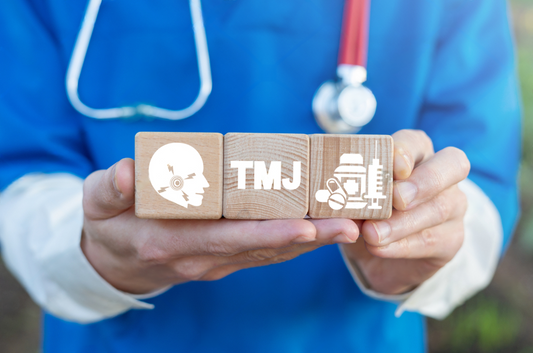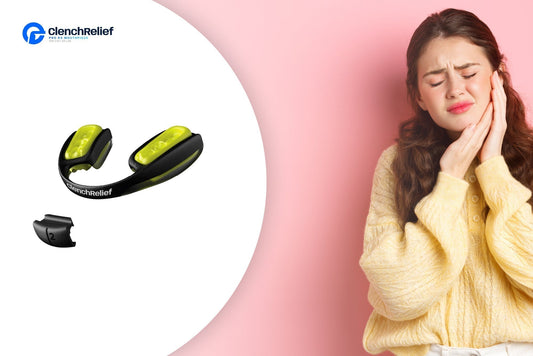
Afraid of the Dentist? You’re Not Alone: You Have Options
Table of Contents
- Why Some of Us Fear the Dentist
- When Fear Keeps You Away
- What Help Can Look Like
- For When the Chair Feels Impossible
- Finding a Bit of Calm
- You Deserve Care That Feels Safe
The last time I sat in a dentist’s chair, I wasn’t in pain—but my heart was racing, my hands were sweating, and I was quietly planning my escape.
Dentophobia (or fear of the dentist) isn’t just about nerves. For many of us, it’s a physical, emotional response that can come from a bad experience, past trauma, or simply feeling powerless. That fear can get so overwhelming that it stops us from getting the care we need.
I’m not here to tell you to push through it—I’m here to offer support, understanding, and a few small steps that might actually feel manageable.
Why Some of Us Fear the Dentist
It started with a single appointment when I was a kid. I remember the cold chair, the bright light in my eyes, and a dentist who didn’t explain anything before getting started. I flinched once, and he sighed like I was being dramatic. That one experience stuck with me, making every visit after that feel like something to dread.
Dental fear doesn’t always start big—it can build slowly over time, shaped by things like:
- Bad experiences. A painful or dismissive visit can linger in your memory and make future appointments feel scary.
- Shame or judgment. If you’re worried about being judged for your teeth—or how long it’s been—you might put off booking indefinitely.
- Loss of control. Being in the chair, unable to speak or see what’s happening, can be deeply unsettling.
- Fear of pain at the dentist: Needles, drills, and even cleanings can trigger severe anxiety, especially if past visits hurt.
- Financial pressure. The cost of dental work adds another layer of stress, especially when you’re already feeling anxious.
It’s not just about what happens in the chair, either. Odontophobia symptoms—racing thoughts, nausea, panic—can show up even when we think about making an appointment. And if you live with general anxiety or have a history of trauma, a dental visit can set off alarms that feel impossible to shut off.
Turns out this is pretty common. Around 36% of people in the U.S. have some level of dental anxiety and about 12% deal with a more intense fear or phobia. So, if your stomach drops at the thought of a checkup—you’re not the only one.
When Fear Keeps You Away
If you’ve put off dental visits for months—or even years—I’ve been there, too. What started as “I’ll call next week” turned into an anxious loop of putting it off, hoping nothing serious was happening in the meantime.
The longer we wait, the harder it feels to go back.
When you avoid dental visits, the consequences aren’t always immediate, but small issues can grow into bigger ones, like:
- Cavities that go untreated and reach the root, leading to infections.
- Gum disease, which can cause swelling, bleeding, and eventually tooth loss.
- Bacteria buildup that affects more than just your mouth—it’s linked to heart issues and other health conditions.
- Pain that sneaks up after months of silence, sometimes becoming urgent when it’s least convenient.
And it’s not just physical. The emotional impact of skipping dental appointments is also real—shame, guilt, and fear of judgment can make returning to the dentist even harder.
What Help Can Look Like
You don’t have to face this fear by yourself. Many dentists offer gentle oral care solutions designed for anxious patients—approaches that prioritize comfort, patience, and trust, so even if the chair feels overwhelming, getting care can still feel possible with options like:
- Sedation options, such as nitrous oxide or oral sedation, help calm the body and mind during procedures.
- The “tell-show-do” technique involves the dentist explaining and demonstrating everything calmly and clearly before starting, so you know exactly what’s coming.
- Slow-paced care, where the dentist takes breaks and checks in regularly to ensure you’re okay.
Some dentists go a step further and offer anxiety-free dental care by creating an environment designed to feel safe and welcoming. You might find:
- Trauma-informed care where the dentist understands how past experiences can affect your current feelings and takes steps to make you feel heard and respected.
- Consultations with no treatment involved, just a simple chat to help you get comfortable with going in before you even sit in the chair.
- Calming aids like noise-canceling headphones, weighted blankets, or even quiet rooms that allow you to relax and tune out the usual dental sounds and lights.
The goal is to relieve the pressure so you can feel more in control. Find a dentist willing to work with you and your specific needs. You don’t have to be afraid to ask for these accommodations—they’re there to help you get the care you need.
For When the Chair Feels Impossible
Some days, even thinking about sitting in a dental chair can make your whole body tense up. If you’re not ready for that step, that’s okay. There are ways to care for your teeth in the meantime—without pushing past what you can handle.
These aren’t permanent solutions but can bridge the gap while you build up to in-person care. Some at-home options to support your oral health include:
- Prescription fluoride toothpaste. Ask your primary care doctor or a dentist (through a virtual consult) for toothpaste to help protect against cavities when you’ve missed a regular cleaning.
- Improved brushing and flossing habits. Brushing with a soft-bristled electric toothbrush and using alcohol-free mouthwash can brighten and freshen your smile.
- Prescription TMJ Mouthpiece kits by mail. If you grind your teeth but can’t get to a clinic, look into custom-fit products like the Clench Relief® Pro Rx Mouthpiece, which doesn’t require in-office impressions.
Some clinics now offer virtual dental visits for anxious patients, where you can meet a dentist over video chat to discuss your concerns. These low-pressure consults allow you to ask questions, explain your fears, and understand how the provider communicates before you step foot in an office.
None of these replace cleanings or dental work long-term, but they can help you stay on track until you're ready for more.
Finding a Bit of Calm
When fear starts to creep in, even the smallest shift can help. Coping mechanisms for dental fear don’t have to be big or complicated—sometimes, it’s just about finding a way to ground yourself.
Deep breathing, short guided meditations, or squeezing a stress ball can help bring your body out of panic mode. Some people find comfort in listening to music, using calming apps, or bringing a trusted friend or partner to sit nearby during the visit.
You don’t always need formal therapy to work through dentophobia, though it can be helpful, especially cognitive behavioral therapy (CBT), which is often used to treat specific phobias.
Online support groups and forums can also be a lifeline. Hearing from others who’ve felt the same way and found ways to move forward.
You Deserve Care That Feels Safe
Your fear is real, and you’re not weak for needing support. Overcoming dental anxiety doesn’t mean rushing; it means moving at your own pace. With options like virtual consults and the Clench Relief® Pro Rx Mouthpiece from Clench Relief Inc., you can start small.
You’ve got choices, and they begin with kindness toward yourself.




